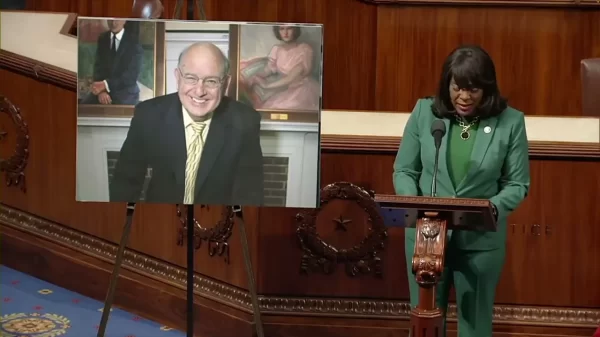Roy Moore and his attorneys would like you to believe that Wednesday’s verdict, which establishes that neither he nor Leigh Corfman defamed each other, amounts to a “complete and total vindication” of Moore.
Corfman’s attorneys would have you believe that the jury “necessarily believed” Leigh’s story of being molested by Moore when she was 14 and he was 32.
The truth, as per usual, probably lies somewhere in the middle.
It’s possible the jury completely believed Corfman’s testimony that Moore preyed upon her when she was 14 years old, taking her to his home, removing her shirt and pants, and touching her over her underwear. As attorney Neil Roman described it, they might believe her story while also finding that Moore’s statements “did not rise to the level of defamation.”
But based on the five basic tenets of defamation the jury was charged with Tuesday, there are other scenarios that are probably even more likely.
Before this trial began, my hunch was that it would end this way.
Through the first five days of testimony, my expectation began to become less clear as Corfman’s attorneys eloquently made a convincing argument.
A major wrench was thrown into the works on Tuesday when former Gadsden attorney Charlie Boyd testified. On the one hand, he corroborated Corfman’s story of her meeting Moore on a bench outside her own child custody hearing. Boyd testified to seeing the two together and even having a brief dialogue with Moore about it. However, Boyd’s testimony also cast doubt as to whether there even was a child custody hearing in 1979. Court documents and Boyd’s own recollection seemed to point toward the hearing taking place in 1980 instead, when Corfman would have been 16 years old.
The closing argument from Corfman’s counsel was incredibly strong and moving, but the closing argument of Moore’s defense, specifically from Melissa Isaak, did sow seeds of doubt about possible holes in the story.
Without speaking to jurors, it is impossible to say what made them return the verdict they did. My personal guess is that it was returned void for the same reason I expected it a week ago: it is very difficult to prove or disprove Corfman’s allegations. The testimony from several women did seem to establish a pattern of Moore’s interest in pursuing underage girls, but the testimony from several others who knew Moore made it seem impossible that he could have been doing anything improper without word getting around.
Corfman attorney Jeff Doss began closing arguments Tuesday with the question “Who do you believe?”
It seems to me that Wednesday’s verdict returns the answer “we don’t know.”
Without concrete evidence from either side to undoubtedly prove what happened, it would seem the jury had no other option but to choose the verdict that found both parties failed to meet the burden of proof for defamation.
Unless jurors decide to speak out about how they reached their verdict, we will never know for sure. But don’t be fooled by the characterizations of counsel — this was truly no victory for either side. We can consider the testimonies and evidence presented for ourselves and come to our own conclusions, but the verdict in this case merely takes us back to square one.

















































